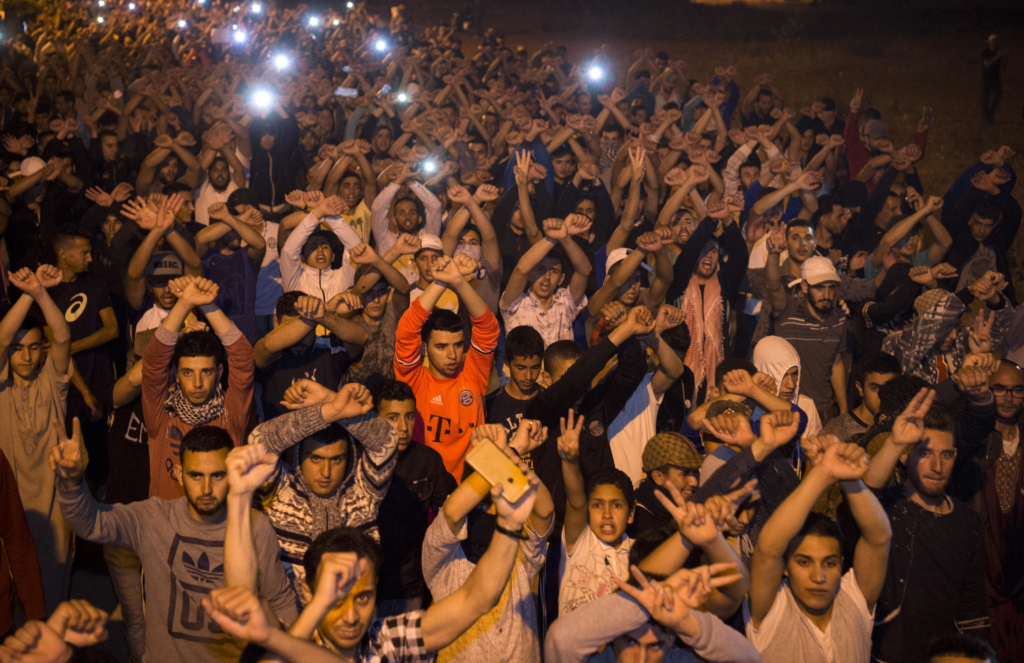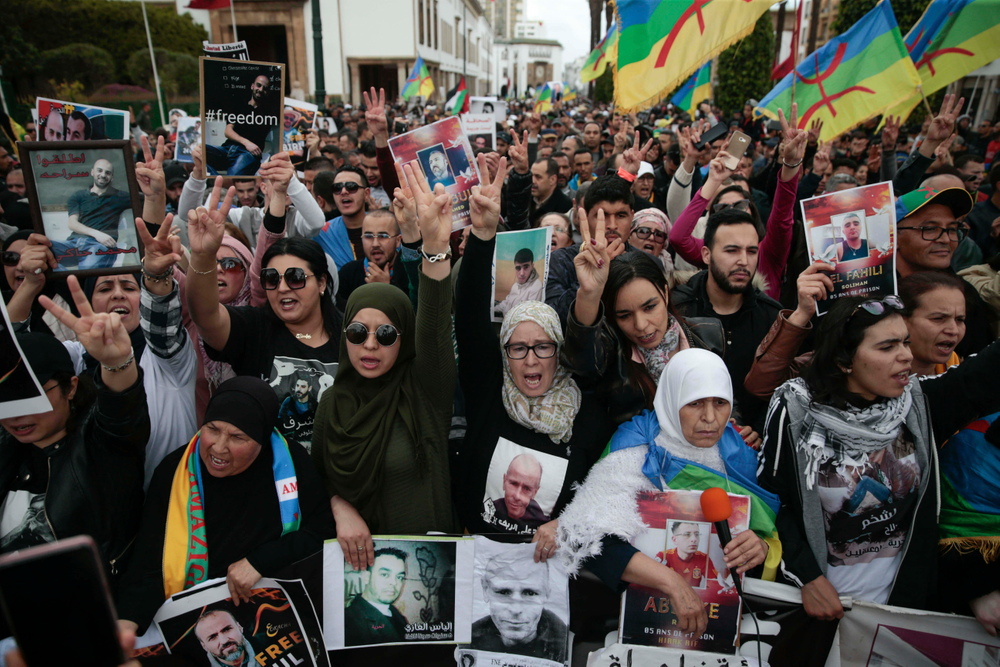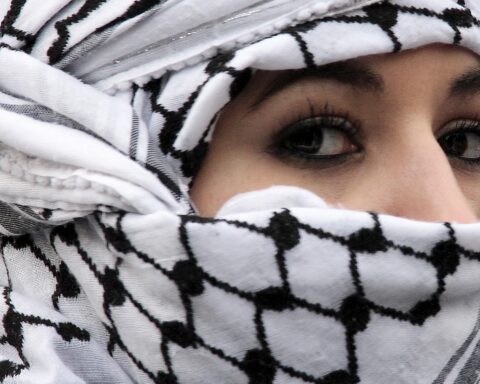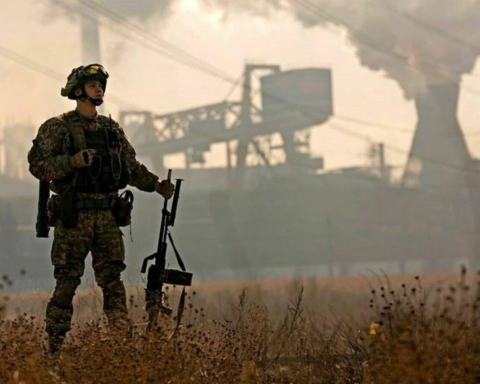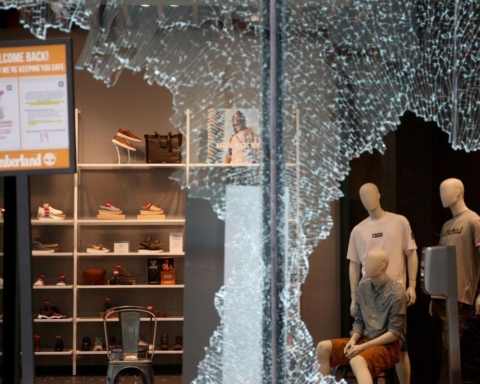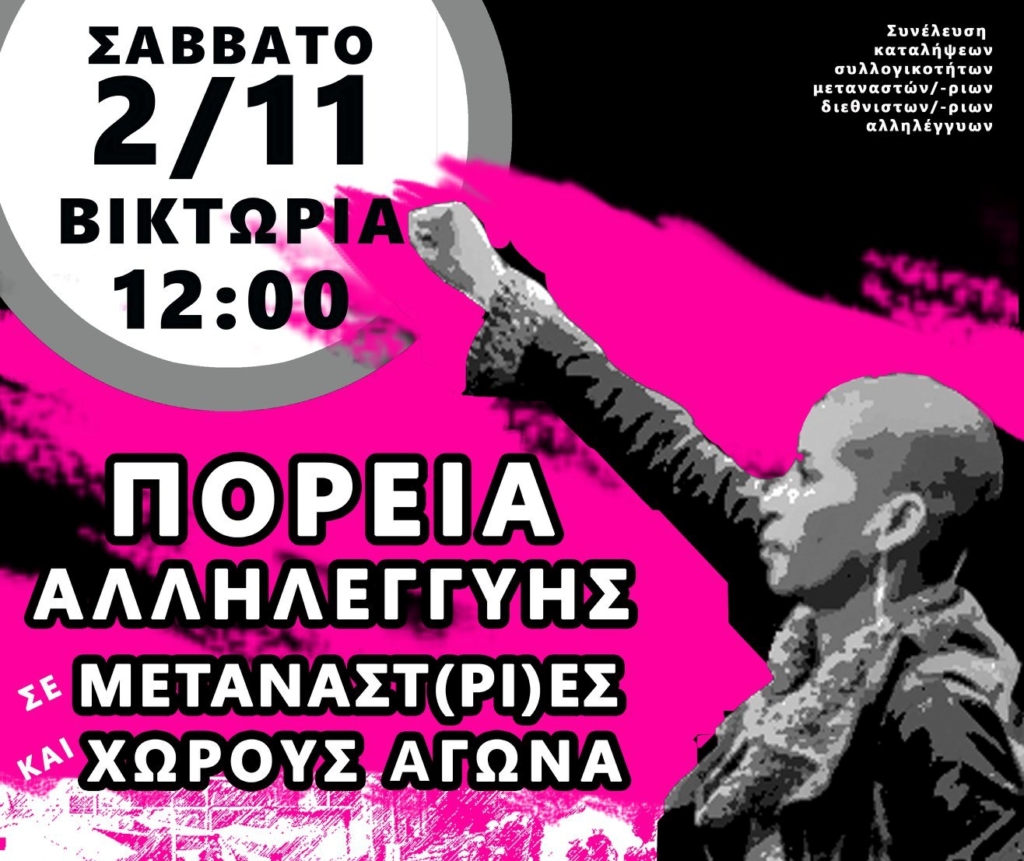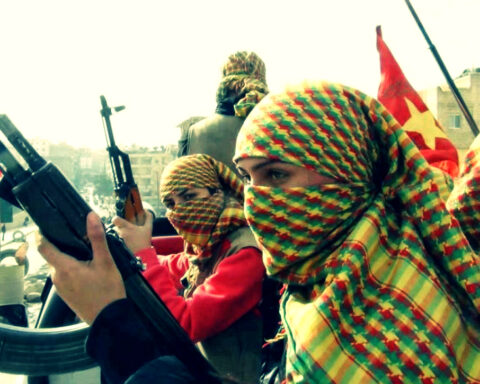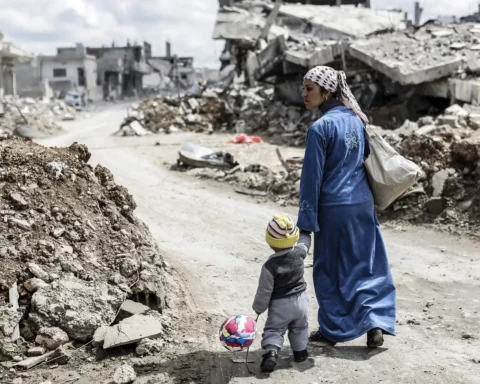At midnight on October 25, 2019, Tawfik Bouachrine, the editor-in-chief of newspaper Akhbar Al Yaoum (Today’s News), was sentenced to 15 years imprisonment. A Casablanca appeals court sentenced him to three years longer than the term imposed by a lower court. Bouachrine was denied key evidence, his cell phone, which had been confiscated and would have cleared him from the charges. The appeals court announced its decision to increase his prison term at midnight on a Friday. Since most Moroccan journalists do not work on Saturday, the timing gives the regime a 36-hour window to propagate its version of a narrative condemning the journalist for alleged human trafficking and rape charges (widely understood to be false).
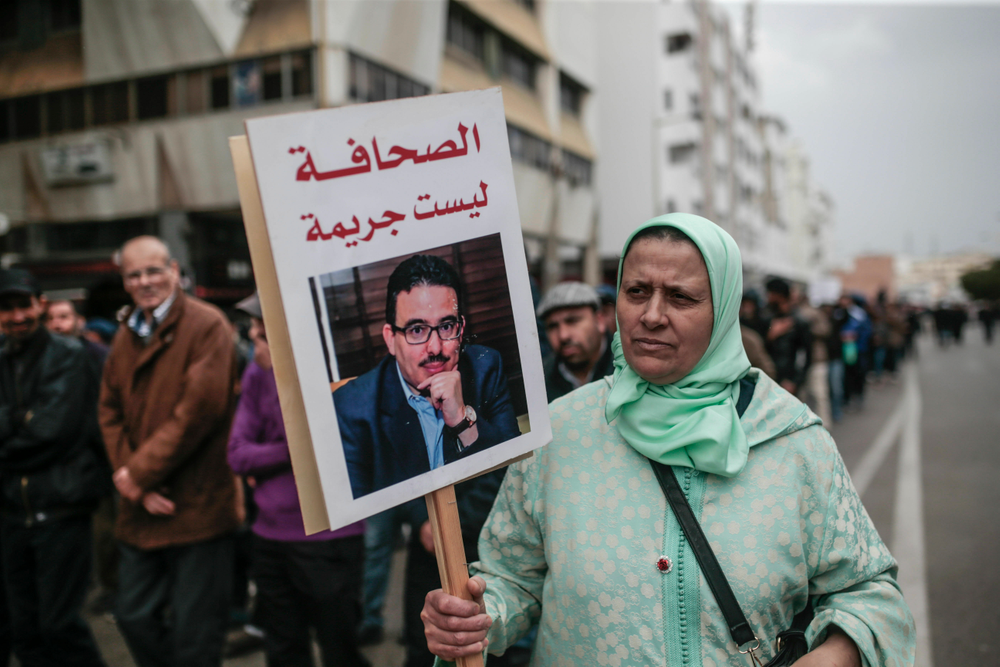
Bouachrine wrote fierce editorials attacking the royal autocracy and what he calls Al Istibdad (despotism). In 2011, he was a leading partisan of the Arab Spring, during which he criticized Islamic leaders for their opposition to the protests. Pro-regime loyalists burned his newspaper in the streets and sought to fan the flames of division between Islamists and leftists. In 2017, Bouachrine was arrested a few months after he roundly criticized the king for having “ruled for eighteen bittersweet years” and being absent for much of his reign. After Bouachrine criticized and mocked Saudi crown prince Mohamed Bin Salman, Saudi journalist Jamal Khashoggi warned him through WhatsApp that he had crossed a line and could be murdered. Instead Bouachrine was arrested on February 23, 2018 and sentenced to 12 years imprisonment. Khashoggi was brutally killed in the Saudi Turkish consulate in Istanbul on October 2, 2018.
Bouachrine is one of nearly a thousand Moroccan political prisoners facing Orwellian surveillance and repression. Female journalist Hajar Raissouni who also wrote for Akhbar Al Yaoum was recently sentenced to one year in prison for “having an illegal abortion and sexual relations outside marriage” despite the fact that she never had an abortion (with evidence backing her up).
Professor Maati Monjib, co-founder of the journalist rights NGO, Freedom Now, has endured more than a decade of political persecution. Political police agents continue to follow him and publish false private information that has made it increasingly difficult for him and his family to live in Morocco. His job at the university has also been threatened. In 2015, Monjib was one of seven people accused of helping create Storymaker, an app that gives citizen journalists the ability to publish content anonymously. Amnesty International reported that he is accused of threatening national security in an ongoing trial that has been postponed 17 times in four years. On September 16, 2015, authorities briefly held Monjib at the Casablanca airport, where he was informed of the travel ban against him. Two days before, he had been summoned by police because of his human rights activities. Monjib undertook a 24-day long hunger strike to protest illegal travel restrictions forbidding him to leave the country. Finally, on October 13, 2015 he was admitted to the hospital as a result of his fast. In October 2019, Monjib announced that one of the world’s premier cyber-mercenary firms, the Israeli NSO Group, had planted spyware on his phone. According to Amnesty International , Monjib and human rights attorney Abdessadak El Bouchattaoui were sent texts containing links to secretly install surveillance software able to monitor even encrypted Signal chats.
Lakome (For You) editor-in-chief Ali Aznouli was arrested on September 17, 2013 and falsely charged under the Anti-Terrorism Law, specifically for “providing support for carrying out a terrorist crime.” His arrest came after attacking what he called the king’s repeated, extended absences. In 2014, Aznouli explained that…“the arrest and charges are politically motivated, and have to do with Lakome’s independent editorial line and the series of articles and investigations that exposed the corruption within the Moroccan state and criticized the real ruling powers in the country and how they have handled major issues.” The police took advantage of Aznouli’s arrest to cut access to his newspaper’s web site, forcing him to develop a new, but similarly named site. Released on bail, Aznouli’s trial has been postponed repeatedly for five years continually putting him in a position where he feels jeopardized and insecure. Nonetheless, he continues to publish truthful exposes, such as, “Fifteen years of Mohammed VI’s rule has proven that the government has no political will to liberalize the public media and guarantee independent journalism, the economic basis of which has been eliminated. The government has yet to put in place a journalism code, to ensure access to information, and to protect the freedoms won so far in the field of journalism, expression, protest, and opinion. These freedoms have been won at a heavy cost, and to continue to benefit from them, one must be ready to pay it.”
These examples of prominent intellectuals kept in a constant state of insecurity are part of the reason why Freedom House rates Morocco poorly, and why Reporters Without Borders’ 2015 report ranked the country 130th in terms of press freedom, trailing countries like Afghanistan and South Sudan.
Most Moroccan political prisoners are from the Rif region, where nationalist ambitions were evident in the many Rif flags at a May 2019 protest in front of parliament. Mothers of prisoners traveled hundreds of miles and converged in the streets, many wearing all black from head to toe. Although the police presence appeared to be minimal, cameramen from all sides took images continually.
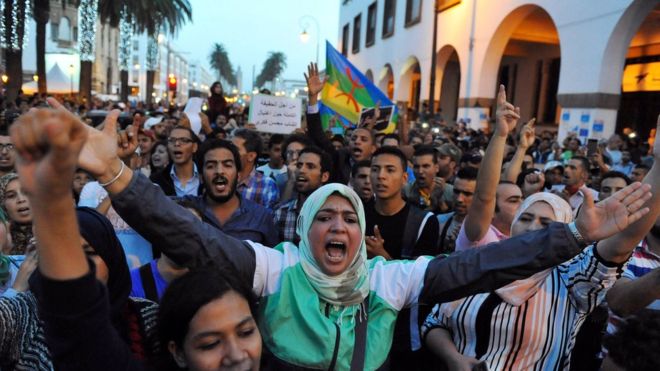
Beginning on October 28, 2016, the killing of a fish vendor by police was the spark that led to a wave of protests unmatched since the 2011 Arab Spring. In more than 40 cities, protesters called for an end to repression in solidarity with the oppressed. On June 11, 2017 a million people marched for “freedom, dignity and social justice” and solidarity with Rif prisoners, particularly movement leader Nasser Zefzafi. In many cities, demonstrators also waved the flags of the Amazigh, Morocco’s Berber community.
At the far reaches of both European and Arabic civilizations, Morocco is a unique combination of historical survivalisms. Combined with stunning natural beauty in mountains, beaches, and deserts that have become exotic tourist destinations, Morocco is the most stable country in North Africa and a close USA ally against Islamic radicalism. On the surface, new train stations and modern airports stand beside modern highways and high speed trains. Luxurious villas and tourist resorts with beautiful pools and golf courses witness steady streams of expensive cars. Dozens of palaces adorn the countryside, but at least 15% of the population live in abject poverty. About forty percent of Moroccans live on less than four dollars a day. As the king’s autocratic decisions have become increasingly repressive, the country’s future stability becomes increasingly questionable. The monarchy responded to the 2011 Arab Spring by making limited reforms, but the new waves of protest in 2016 and 2017 have been met with harsh measures. The regime continues to divide Islamic opposition from leftists, thereby isolating key figures who can then be targeted without unified opposition. Whether or not its divide and rule strategy will succeed depends on many factors, none no more important than the multifarious opposition’s capability to unite into a powerful movement.
_______________________
George Katsiaficas has been active in social movements since 1969 when he participated in the anti-Vietnam War movement. A target of the FBI’s COINTELPRO program (Counterintelligence), he was honored to be classified “Priority 1 ADEX”. For 11 years, he worked in Ocean Beach, California (as described at the end of Andre Gorz’s book Ecology as Politics) in a radical countercultural community that fought against war. After living in Berlin for 1 1/2 years and learning first-hand about the autonomous movement there, he wrote about that movement (The Subversion of Politics: European Autonomous Social Movements and the Decolonization of Everyday Life). For years, he was active for the cause of Palestinian rights. A graduate of MIT and UCSD (where he studied with Herbert Marcuse), he wrote his dissertation about the global movement of 1968 (published as The Imagination of the New Left: A Global Analysis of 1968). He has been teaching at Wentworth Institute of Technology in Boston. In 2001, he did research at the May 18 Institute at Chonnam National University in Kwangju South Korea, especially focusing on the 1980 uprising. For 6 six years, he was editor of New Political Science and brought many unknown issues into public view, with special issues on the Sudan and one on the Black Panther Party (published as a book by Routledge–Liberation, Imagination and the Black Panther Party–coedited with Kathleen Cleaver.) A peace advocate by nature, he is also unwilling to tolerate injustice and work incessantly for the realization of his ideals.
MORE INFO:
